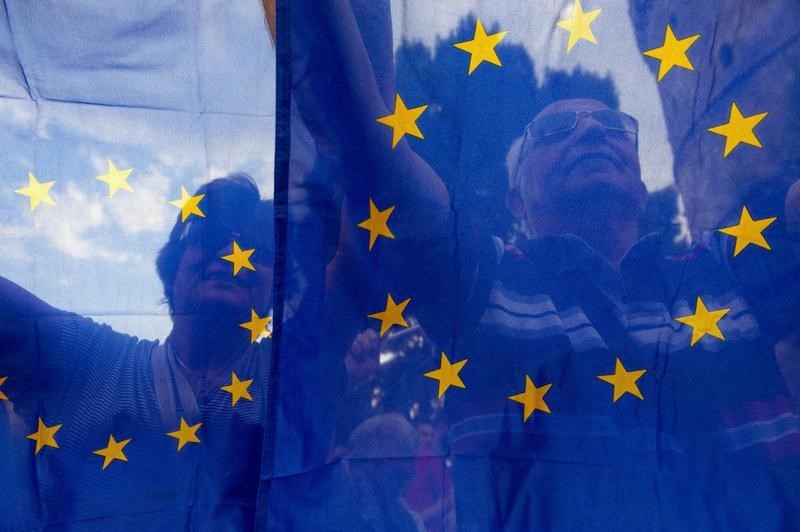By Geoffrey Smith and Robert Zach
Investing.com -- European politicians are set to discuss fresh sanctions on Russia later Monday after the emergence at the weekend of evidence of atrocities committed by Russian troops against civilians in Ukraine.
However, the continent still appears no nearer to a complete boycott of Russian energy, seen by many as the only way to exert enough economic pressure on Russia to change its course.
Finance ministers from the Eurozone are due to meet at 6 AM ET (1000 GMT). Charles Michel, president of the EU Council that coordinates the actions of the member states, tweeted earlier that "further EU sanctions & support are on their way," without specifying further.
French President Emmanuel Macron told the radio station France Inter earlier that EU sanctions should be extended to cover Russian oil and coal, although he left out natural gas.
"What happened in Bucha requires a new round of sanctions and very clear measures," said Macron, who faces the first round of a presidential election at the end of this week.
"Unless the sanctions target energy supplies to Europe, or firms from other countries (e.g. China or India) doing business with Russia, the marginal economic impact (of new sanctions) is likely to be limited," said Paul Donovan, chief economist with UBS Global Wealth Management, in a morning briefing.
Europe sends Russia nearly $1 billion a day to pay for its imports of oil, refined products, coal and natural gas. Benchmark northwest European gas futures were little changed on Monday morning, indicating low expectations of a dramatic change to policy. The euro fell 0.3% to $1.1025.
Various reports over the weekend uncovered evidence of mass executions of civilians by Russian troops during their three-week occupation of the area. The Mayor of Bucha, Anatoly Fedoruk, said the authorities had found 280 people in a mass grave, all shot in the back of the head, some with their hands tied behind their back. Iryna Venedyktova, Ukraine’s prosecutor-general, said 410 bodies of civilians had been recovered from the Kyiv region.
Moscow said that the images distributed around the world were fake and had been staged by the Ukrainian authorities.
However, the German political establishment remains reluctant to impose a boycott that would have an immediate impact on the German economy, due to the practical difficulties of finding alternatives to Russian energy in the short term.
SPD head Lars Klingbeil said on a talk show late on Sunday that he still considers an immediate gas embargo to be "the wrong course". Bavaria's Governor Markus Soeder, head of the center-right CSU party, agreed, pointing to the fact that Russia ia already looking for alternative customers such as India.
Development Minister Svenja Schulze, also a member of Chancellor Olaf Scholz's center-left Social Democrats, told the TV stations RTL and ntv that sanctions should "above all hurt Russia and not us." She added that the steel and chemical industries would be particularly hard hit by a sudden stop of Russian energy supplies.
Germany's Vice-Chancellor Robert Habeck said last week that Germany will be unable to wean itself off Russian gas until 2024.
